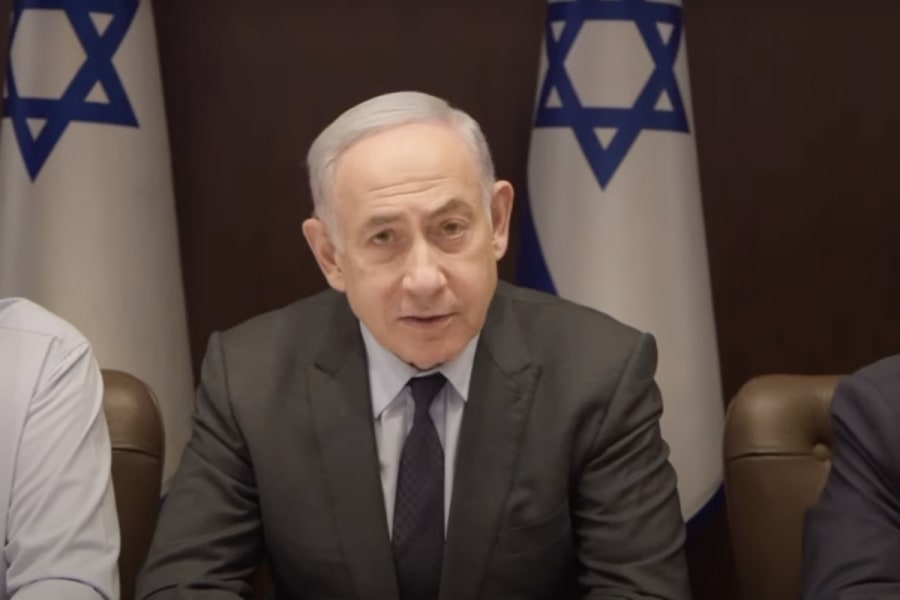Those who harm us, we will harm, warns Netanyahu in response to Iranian threats
Iranian Supreme Leader Ali Khamenei threatens retaliation against Israel's alleged airstrike on top Iranian general

Israeli Prime Minister Benjamin Netanyahu issued a strong warning to Iran and its terrorist proxies on Thursday, warning the regime Israel will respond forcefully to any attempted attacks against Israelis.
“Iran has been acting against us for years – directly and via proxies. And, therefore, Israel acts against Iran and its proxies – defensively and offensively,” Netanyahu stated.
“We will know how to defend ourselves, and we will act according to the simple principle – that those who harm us or plan to harm us, we will harm,” the prime minister vowed.
Netanyahu’s barely-veiled warning comes amid threats from the Iranian regime in response to the recent assassination of the top Iranian General Mohammad Reza Zahedi, his deputy, and several other senior Iranian officials near the Iranian Embassy in Damascus, Syria. Zahedi served as the Quds commander for Iranian-affiliated forces in Syria and Lebanon.
The Iranian regime quickly blamed Israel for the airstrike that killed Zahedi, despite Israel neither confirming nor denying its involvement, according to its military protocol in Syria.
On Friday, the Islamic State of Iran and leaders of its terror proxies attended the annual Quds Day parade in Tehran. Quds, the Arabic name for Jerusalem, established a day of celebration that serves as a tool for political and religious incitement against the Jewish state each year. Thousands participated in the march, holding banners that read: “Death to Israel” and “Death to America.”
The Iranian Supreme Leader Ali Khamenei issued threats against Israel ahead of the Quds Day.
“This year’s Quds Day will be a global uproar against the usurping Zionist regime,” said Khamenei.
Israeli and American military analysts have speculated on how Iran would respond to the assassination of its top general. They believe Tehran’s preferred strategy may be to continue waging war through its terror proxies, such as Hezbollah, Hamas and the Houthis. Another option would be to strike a "soft target" outside of the Middle East, such as an Israeli embassy or Jewish community.
However, Iranian officials claimed on Friday that Tehran had decided to issue a direct response against Israel while putting the Iranian forces on high alert.
“We warn you, no enemy act against our holy system will go unanswered,” Islamic Revolutionary Guard Corps (IRGC) chief General Hossein Salami said on Friday. “The collapse of (the Zionist regime) is very possible and close with God’s grace.”
Addressing Washington, Salami claimed that the U.S. has become “wildly hated by the world, especially in Muslim-dominated countries” for backing Israel.
Despite the fierce rhetoric, some say Iran's military options against Israel are limited. If Iran were to respond directly, it would likely be with either missiles, drones, or a combination of the two. At the same time, the regime may choose to avoid beginning a conflict that could undermine the Iranian regime’s viability and its nuclear weapons program.
Given the significant geographical distance between Israel and Iran, air forces are likely the primary assets to be used in any potential direct confrontation.
air forces stand as the primary means likely to be utilized in any direct engagement.
The Islamic Republic of Iran Air Force (IRIAF) is at a distinct disadvantage compared to the Israeli Air Force (IAF), both in terms of numbers and quality.

The All Israel News Staff is a team of journalists in Israel.













